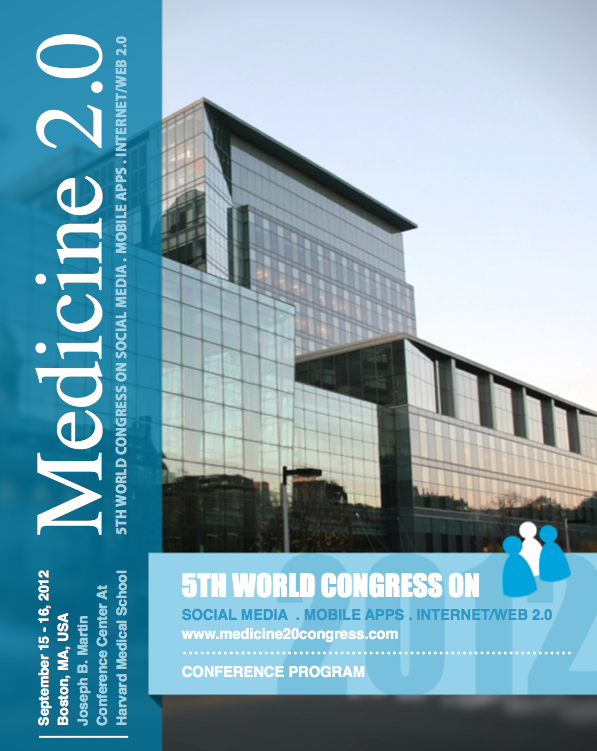A report on the Medicine 2.0 conference in Boston

Report by Experientia researcher Anna Wojnarowska
Harvard Medical School hosted this weekend the Medicine 2.0 conference in Boston.
The fifth edition of the event invited academics, practitioners and clinicians for two days of lectures, discussions and presentations, analyzing the changes taking place in the healthcare sector around the world.
A major topic recurring throughout the presentations was how decision makers can respond and finally fulfill patients’ needs to engage more consciously in their treatment, personal data management and the diagnosis process, areas that had been hidden from them beforehand.
Dave Debronkart, the closing speaker of the conference highlighted how the dynamics between the medical institutions and their patients reshape in the Web 2.0 reality and how they will further develop.
While we are used to a one directed top down relation between the authorities and the patients this is changing now into a growing interaction between the two and will further evolve into a dynamic environment where all of the parties involved will be able to freely share content, exchange opinions and expertise and look for advice.
The area of user experience research in healthcare seems to be still only developing, but with visible progress. An interesting presentation by Cassie Mcdaniel from the Centre for Global eHealth Innovation (Toronto) showed how the designers struggle to survive among the healthcare providers, trying to deliver user friendly solutions.
Two obstacles – complexity of the issues to address and the difficulty in cooperating with all the parties involved – render the implementation of changes slow and rarely effective. Nevertheless the reality is changing and more and more stakeholders see the value of users research methods when researching future opportunities for development.
As one of the presentation in the “Consumer empowerment, patient-physician relationship and sociotechnical issues” panel, I presented a project I conducted at University College London in 2011, under the supervision of Stefana Broadbent.
It was an ethnographic study of a cardiology institute in Warsaw with a focus on the way the digital technologies influence the dynamics between the doctors and patients. The audience admitted that approaching such a fragile context as hospitalization in an ethnographic, direct way is highly valuable and allows to formulate context relevant insights that would not be attainable through other methodologies.
I am looking forward to hearing about the progress in various research initiatives signaled this year during Medicine 2.0 2013 next fall in London!




Thanks for mentioning my talk, I’m glad you found it interesting. I uploaded my slides here: https://speakerdeck.com/u/cassiemc/p/the-embedded-designer-the-next-big-step-for-healthcare-systems and Gonzalo captured a bootleg video of the presentation here: http://socialtechnologiesresearch.com/?p=436&preview=true =) Hopefully I have time soon to organize my own notes and thoughts soon. Thanks for sharing yours!